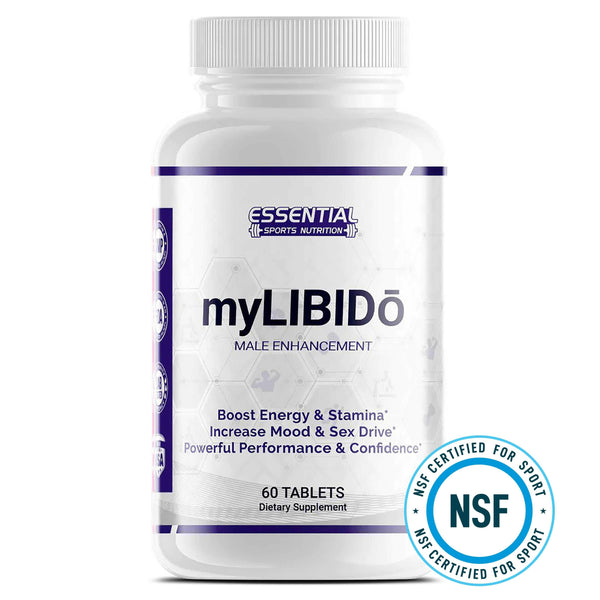The Hidden Dangers of Water-Soluble Vitamins and How to Avoid Overdose
Are you feeling overwhelmed by the vast array of vitamin supplements available and wondering if taking too many might harm you? You're not alone. Many people assume that because vitamins are essential for health, more must be better.
But did you know that taking large doses of water-soluble vitamins can actually lead to serious health issues?
Water-soluble vitamins like Vitamin C and B-complex (B1, B2, B3, B6, and B12) are crucial for our bodies' functions but aren't stored in the body. This means they need to be replenished regularly through diet or supplements.
However, consuming excessive amounts can lead to unpleasant side effects like nausea and diarrhea.
Understand the potential risks of overdosing on water-soluble vitamins and how to recognize symptoms of toxicity.

Key Takeaways
- High doses of Vitamin C (over 2 grams per day) can lead to nausea, diarrhea, and even kidney stones.
- Consuming large amounts of B vitamins can result in serious issues like nerve damage, skin rashes, irritability, and insomnia.
- Overdose symptoms include mood changes, trouble sleeping, skin sensitivity or rashes.
- The body does not store excess water-soluble vitamins; any surplus leaves through urine.
- Always consult a doctor before altering your vitamin intake to avoid potential health risks.
Identifying Water-Soluble Vitamins
Water-soluble vitamins dissolve in water and leave the body through urine. They include important vitamins that support health.
Vitamin C
Vitamin C is essential for good health. It helps the body repair tissues and boosts immunity. It’s found in fruits like oranges, strawberries, and kiwi. Most adults need about 90 mg of Vitamin C each day.
High doses of Vitamin C can cause problems. If you take more than 2 grams a day, you might get an upset stomach or diarrhea. Too much Vitamin C can also lead to kidney stones. Stick to the recommended dose to avoid these issues.
It’s important to know that your body doesn’t store extra Vitamin C. This vitamin is water-soluble, so any excess leaves through urine. Taking large amounts won’t benefit you more; it may only harm your health instead.
B Vitamins (B1, B2, B3, B6, B12)
Excessive intake of B vitamins can lead to serious health problems. Large amounts of Niacin (B3) can cause high blood pressure, abdominal pain, and liver damage. Too much Vitamin B6 over a long time may result in severe nerve damage, skin lesions, and heartburn.
Folic acid (B9) taken in excess can negatively impact mental function and weaken the immune system. Consuming too much Thiamine (B1) might cause paralysis, restlessness, or convulsions.
High doses of Vitamin B12 are linked to allergic reactions and even heart failure or pulmonary edema. These effects highlight the importance of sticking to recommended daily doses for these nutrients.
Potential Risks of Water-Soluble Vitamin Overdose

Taking too much of water-soluble vitamins can lead to serious health issues. Overuse can make you feel sick or even damage your nerves.
Nausea and Diarrhea
High doses of vitamin C can cause nausea and diarrhea. Consuming more than 2 grams per day often leads to these problems. This high intake disrupts the gastrointestinal tract. People may experience stomach pain too.
Hypervitaminosis, or excessive vitamin use, worsens these symptoms. Water-soluble vitamins like B6 and B12 can also contribute if taken in large amounts. Always monitor your daily dose to avoid such issues and maintain a balanced diet with necessary nutrients without risking overdose on vitamins.
Nerve Damage (from excessive B6)
Vitamin B6 is essential for your nervous system. But too much of it can harm you. People who take high doses may suffer nerve damage, known as sensory neuropathy. This condition affects how your nerves send signals to the brain.
Symptoms include pain and numbness in hands and feet. Severe cases might cause loss of balance or trouble walking. Prolonged overconsumption leads to more serious issues like skin rashes and heartburn.
Always stay within safe limits to avoid toxicity effects from vitamin B6.
Increased Risk of Kidney Stones (from excessive Vitamin C)
High doses of vitamin C can lead to kidney stones. The body's maximum adult dose is 90 mg per day. Going beyond this amount may cause a buildup in the kidneys.
Kidney stones form from excess oxalate, which binds with calcium. Vitamin C can increase oxalate levels when broken down. Drink plenty of water and monitor your vitamin intake to avoid complications.
Taking too much vitamin C may also result in nausea and diarrhea. Stick to the recommended dosage for safety and health reasons.
Recognizing Symptoms of Overdose

Overdosing on water-soluble vitamins can cause mood changes and trouble sleeping. You might also notice issues with your skin like rashes or increased sensitivity.
Irritability and Insomnia
High doses of B vitamins can make you feel irritable. Too much Vitamin B6, B12, or niacin (B3) can disturb your sleep. Niacin may lower blood pressure and cause insomnia.
Irritability is common with high levels of these vitamins in your system. Tingling and numbness in limbs from excess B12 also interfere with good rest. Be mindful of how much you take to avoid these issues.
Skin Rash and Sensitivity
Excessive intake of B6 vitamins can cause skin rashes. These rashes may look red and bumpy, making the skin feel itchy. This vitamin toxicity results from prolonged use of high-dose supplements.
Vitamin B3, also called niacin, can lead to skin flushing. The face often turns red and feels warm due to increased blood flow. Some people might also experience pruritus or severe itching as a side effect.
Photophobia or light sensitivity is another symptom caused by too much Vitamin B2 (riboflavin). Besides eye discomfort, this overdose might bring other issues like mouth ulcers. These symptoms highlight the need for balanced vitamin intake to avoid adverse effects such as acute or chronic vitamin overdose.
Conclusion

Understanding the risks of taking too many vitamins is crucial. Water-soluble vitamins can cause issues if consumed in large amounts. Signs like nausea, irritability, and skin rashes should not be ignored.
Simple changes to your diet or supplements can prevent these problems. It’s wise to talk with a doctor before making any changes to your vitamin intake.
Protect your health by being mindful of what you consume. A balanced approach ensures well-being for years to come!
Safety When Taking Vitamins FAQs
Q: What are water-soluble vitamins?
A: Water-soluble vitamins dissolve in water and include vitamin C and the B-vitamins like biotin, folate, and pyridoxine.
Q: Can taking too much of these vitamins cause toxicity?
A: Yes, large amounts of water-soluble vitamins can cause toxic effects even though they are excreted from the body.
Q: What are some symptoms of a vitamin overdose?
A: Symptoms may include vomiting, hair loss, weight changes, and gastrointestinal issues like constipation or diarrhea.
Q: How do I know if I have taken too much vitamin B12 or folic acid?
A: Signs of an overdose may include neurological disorders such as migraines or dizziness and adverse side effects like liver toxicity.
Q: Are there any risks associated with taking high-dose vitamin supplements?
A: High doses can lead to acute toxicity causing organ damage including kidney failure or cardiovascular disease due to bioaccumulation in the body.
Q: Should I consult a doctor before starting a new multivitamin supplement?
A: Yes! Always talk to your healthcare provider since certain medications or conditions might interact with high-dose vitamins leading to potential toxicity.
Q: What are water-soluble vitamins?
A: Water-soluble vitamins are a group of vitamins that dissolve in water and are not stored in the body. They include vitamin C and the B-complex vitamins.
Q: What are the risks of vitamin toxicity?
A: Vitamin toxicity can occur when you consume too much of a particular vitamin, leading to adverse effects on your health. This is particularly a concern with fat-soluble vitamins like vitamin A and D.
Q: How can vitamin toxicity impact the body?
A: Excessive intake of certain water-soluble vitamins can lead to various health issues such as nausea, vomiting, kidney stones, and nerve damage.
Q: What are the symptoms of vitamin overdose?
A: Symptoms of vitamin overdose can vary depending on the specific vitamin but may include fatigue, digestive issues, and in severe cases, organ damage.
Q: Are water-soluble vitamins safer than fat-soluble vitamins in terms of toxicity?
A: Generally, water-soluble vitamins are considered safer than fat-soluble vitamins in terms of toxicity as excess amounts are usually excreted in urine rather than stored in the body.
Q: How can one prevent vitamin toxicity?
A: To prevent vitamin toxicity, it is important to follow recommended daily allowances for each vitamin, avoid excessive supplementation, and consume a balanced diet rich in a variety of nutrients.
Q: Can vitamin toxicity be caused by dietary supplements?
A: Yes, vitamin toxicity can occur from overconsumption of dietary supplements containing high doses of vitamins, especially fat-soluble vitamins like vitamin E and vitamin A.




























